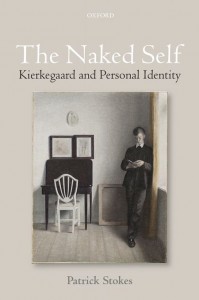
Along with Aqua’s “Barbie Girl”, Pauline Hanson has long stood as a grim reminder that the second half of the 1990s was much worse than the first half. And now, 18 years later, Hanson finds herself back in Canberra.
Hanson’s racist agenda will be a stain on the Senate just as surely as the views she represents are a stain on Australia itself. For that reason alone, her return is a cause for dismay. But it is not the only cause.
Both Hanson herself and her wider party have a vocal sideline in science denialism: the view that expert consensus on various topics is corrupted and unreliable.
Hanson has pushed the myth that vaccination causes autism and she wants a royal commission into the “corruption” of climate science, declaring:
Climate change should not be about making money for a lot of people and giving scientists money.
At the time of writing, it’s quite possible Malcolm Roberts, who has the number two slot on the One Nation Senate ticket in Queensland, will be joining Hanson in Canberra. Roberts is a project leader of the Galileo Movement, a lobby group that denies anthropogenic climate change and insists the global scientific community and governments are corruptly hiding the truth from their publics.
Our Project Manager Malcolm Roberts is in with a very serious chance of making the Senate. Watch out alarmist, we are coming to expose you.
— Galileo Movement (@GalileoMovement) July 3, 2016
Conspiracism in public life
This might seem small beer next to the potentially disastrous effects a Hansonite revival might have on Australia’s pluralist and multicultural society.
But remember: Hanson had an outsized impact on Australian politics in the ‘90s precisely because she gave voice to views that resonated with much of the electorate and, unlike other politicians, wasn’t quite canny enough to reach for the dog whistle. In openly using phrases like “swamped with Asians”, Hanson shifted the Overton Window until the political establishment found the only way her views could be contained was by absorbing them.
Enter Roberts, a man who honestly believes a “tight-knit cabal” made up of “some of the major banking families in the world” is advancing corrupted climate science with the aim of global domination. Such language has some very dark associations in the history of conspiracy theory. Hence Andrew Bolt dissociated himself from the Galileo Movement for peddling a view that “smacks too much of the Jewish world conspiracy theorising I’ve always loathed”.
One might think that if even an arch-denialist like Bolt can’t abide views like Roberts’, One Nation’s climate conspiracism will end up either repudiated or ignored. But, then, nobody in 1996 thought “swamped with Asians” rhetoric would have such an impact on the Australian polity either.
‘Post-truth politics’?
Besides, this has been a good season globally for political expertise bashing. Perhaps the new One Nation senators will find that, in another echo of the Howard years, the times will suit them.
In the lead-up to the UK’s referendum on leaving the European Union, Tory MP and leading Leave campaigner Michael Gove declared that “people in this country have had enough of experts”. Gove is now in the running to become the prime minister who will preside over the UK’s divorce from the EU – and quite possibly, the break-up of the United Kingdom itself.

Should Gove get the gig, his counterpart across the pond come January 2017 may well be one Donald Trump, a man who believes climate change is a hoax and that vaccines cause autism (and who has given voice to suspicions that Obama wasn’t born in the US and that Ted Cruz’ father was involved in the Kennedy assassination).
Healthy young child goes to doctor, gets pumped with massive shot of many vaccines, doesn't feel good and changes – AUTISM. Many such cases!
— Donald J. Trump (@realDonaldTrump) March 28, 2014
Of course, denialism won’t be a novelty in Canberra either. Dennis Jensen won’t be there when Senator Hanson arrives, but his colleague George Christiansen will be. David Leyonhjelm may no longer grace the Senate crossbenches, but thanks to him we’ll still be paying for a commissioner to investigate Wind Turbine Syndrome complaints despite the lack of evidence for any such condition. And lest this be dismissed as a mere lefty rant, we should also note the Greens’ stance on genetically modified organisms.
All of this might be ascribed to “post-truth politics”, the condition in which norms of truth-telling no longer constrain political discourse. But simply insisting people tell the truth – hardly an outrageous demand – won’t help with this specific problem.
To invoke the philosopher Harry Frankfurt’s ingenious distinction, post-truth politics is not fundamentally about lies, but bullshit. The liar knows the truth and cares about it enough to conceal it. The bullshitter, by contrast, doesn’t care (and may not know) if what they say is true; they just care that you believe it.
Trump, it seems fair to say, is a bullshitter. Much of the Gove-Johnson-Farage Brexit campaign was certainly built on bullshit.
But science denialists are not, or at least not necessarily, liars or bullshitters. Their beliefs are sincere. And they are shared by a great many people, who by definition won’t be persuaded by simple appeals to expert opinion because the authority of expert opinion is precisely what they deny. How should we respond to this?
Naïve Reason won’t save us
One disastrous answer would be to retreat into a naïve conception of capital-r Reason as some sort of panacea. Surprisingly smart people end up plumping for such a view. Consider this bit of utopianism from Neil deGrasse Tyson:
Earth needs a virtual country: #Rationalia, with a one-line Constitution: All policy shall be based on the weight of evidence
— Neil deGrasse Tyson (@neiltyson) June 29, 2016
Even if Tyson’s being tongue-in-cheek here, this is emblematic of a fairly widespread view that if we just consult The Facts, and then simply apply the infallible techniques of Reason to these Facts, it becomes blindingly obvious precisely What Is To Be Done. This view is only slightly less naïve, and barely less self-congratulatory, than those it opposes.
You sometimes come across people who want to insist that battles over science denialism represent a conflict between “reality” and “ideology”. But there’s no direct access to “reality” – all knowledge is mediated through our existing concepts, language and so on – and so, arguably, no non-ideological access to it either.
Human knowledge doesn’t drop from the sky fully formed and transparently validated by some infallible faculty of Reason. It’s always filtered through language, culture, politics, history and the foibles of psychology. Producing knowledge is something humans do – and that means power relations are involved.
Distributed knowledge and trust
While anti-intellectualism and suspicion of expertise are nothing new, the problem is amplified by the very advances that make modern life what it is. Put crudely, we now know so much that nobody can know it all for themselves, and so we have to rely more and more on other people to know things for us.
Under such conditions of distributed knowledge, trust becomes ever more important. You can’t be an expert in everything, so you have to take more and more on trust.
Is human activity warming the climate? Does the MMR vaccine cause autism? Would Brexit tank the UK’s economy? These are not questions you or I can answer, assuming you or I aren’t researchers working in the relevant fields. So we have to defer to the relevant communities of experts – and that’s a problem if you’re not good with trust or deference.
The physicist Brian Cox recently said of Gove’s expertise remark that it represents the way “back to the cave”. If that’s a fate we want to avoid, we’re stuck with distributed knowledge and the reliance on others it involves.
That being so, we need to enhance trust in the knowledge-generating social structures we depend upon. Of course, a certain proportion of people are always going to insist that scientists are secretly lying to us for profit, or that doctors are incompetent or evil. The paranoid style, as Richard Hofstadter called it, will always be with us. And there will always be demagogues willing to exploit that paranoia, to turn expertise into an us-and-them conflict, or to feed resentment and flatter egos by telling people they know better than their GP or climatologists.
But such views can only gain broader traction if people are alienated from those sources of knowledge, if they see them as disconnected from and perhaps even hostile to their own lives and interests.
Technical knowledge is predominantly produced by universities and utilised by a political class. These are institutions that are much harder to trust if university is a place that nobody like you goes to, or if nobody in the political class sounds like you. It’s much easier to see “government” as some sort of malign, alien force if you have no investment in its processes or hope of benefiting from them. Equally, when “government” means your friends and family who work in public service, rather than a distant and abstract locus of force and authority, pervasive suspicion becomes harder to maintain.
![]() Expertise denial has become a deeply corrosive feature of modern political society. It needs to be called out wherever it appears. But we also need to think about how we reduce people’s disconnection from the sources of epistemic authority. That is a far more wickedly difficult problem. It’s one we’ll still be dealing with long after Hanson’s second 15 minutes are over. But we can’t wait until then to start.
Expertise denial has become a deeply corrosive feature of modern political society. It needs to be called out wherever it appears. But we also need to think about how we reduce people’s disconnection from the sources of epistemic authority. That is a far more wickedly difficult problem. It’s one we’ll still be dealing with long after Hanson’s second 15 minutes are over. But we can’t wait until then to start.
Patrick Stokes, Senior Lecturer in Philosophy, Deakin University
This article was originally published on The Conversation. Read the original article.








